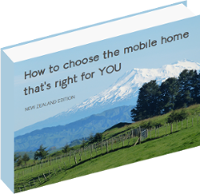Connectivity
08 April 2014
|
This is part eleven of 'How to choose a mobile home'. |
In theory we can take our telephones and the internet with us wherever we want to go, and have access to the largest knowledge base on the planet!
Haven't radio waves come a long way since the invention of the original wireless?
INTERNET
Remote internet connectivity throughout New Zealand has had a bad review by visitors and citizens to date though, relying heavily on the very few mobile networks we have:
Your cellular smartphone can often do most of the things you'd need while away from the 'office' like checking emails, browsing the internet, conference calling with others albeit on a tiny screen. It can also be used as a wifi access point for other devices if you need to bring your laptop along or you can purchase a separate device for this purpose.
Alternatively you can purchase network-specific 3G sticks to insert directly into your laptop, but beware these are operating-system dependent.
Make sure you compare any plans or bundles between the options before deciding on one. After the initial purchase of a 3G stick this will have the same data rate charge as your cellular phone plan.
TELEPHONE
One other consideration for telephony only, is that many mobile cellular companies are able to supply the equivalent of a wireless landline telephone that can travel with you wherever you are in New Zealand for a set monthly fee (or as part of a bundle of products). This may be helpful if you are making more than a couple of local telephone calls for bookings, activities, meeting people, etc.
TELEVISION
The way to go for television in a mobile home seems to be installing a satellite on the roof of the vehicle and a Freeview box inside. [You still need 240v to run most televisions.] Freeview is a collection of all free to air television stations tuned into one appliance. After the initial cost of the equipment the reception is free. Otherwise you are 'stuck' with the few government-subsidised channels. Sky is also an option.
Just a short check-list today:
- Smartphone only?
- Installed Wi-Fi access point?
- Satellite television?
- Freeview box?
- Sky decoder?
- Signal booster?
NZ's Consumer watchdog organisation offers a telecommunications comparison website that may be helpful in evaluating your specific case.
For starters we won't be needing television. Haven't had it for a decade and don't want to waste precious hours in front of it when we can be living the best parts instead!
The internet however is our greatest consideration, particularly as we intend to rely on it for our income. Atlas will more than likely require at least a couple of hours per day, even if he can do much of his development work off-line. I am a bit of a web research fiend and of course will be wanting to update Stellography several times per week so that's another few hours for me; and Vega is probably the same.
At any one time we might have 2 laptops + 1 smartphone accessing the world wide web. I'd like to say we've got it all worked out but we have only just scratched the surface of what providers have to offer and what equipment is out there. When I used the Telme plan comparison website it told me that to have the equivalent internet access that we currently have will cost over $600 per month! That's 6x what we pay now and presently includes a landline and static ip. What I would like to do is pit a couple of leading mobile internet access providers against each other for the term of our New Zealand adventure and see what the coverage and service is like for each. My bias is to 2degrees, so I guess comparing them to a competitor means using Skinny or Spark/Telecom as well.
I have a feeling that we will need to employ some sort of monitoring technique so there are no unwelcome surprises. Perhaps a timer or a data transfer application? It will be like going back to the days where toll calls were an expensive luxury and capped at 5 minutes (in our household anyway).
 |



